Trail Tech's non-descript headquarters could be building anything from pharmaceuticals to parts of government spy planes. But they make cool motorcycle parts.
I've been asked many times, "Can you buy anything for your dirt bike that is made in the USA?" Well, after doing some looking, the answer is YES! A lot of the time the products are not even the ones you might think. Case in point: Trail Tech, a company that makes electronic-based goodies for your dirt bike. From stators and flywheels to headlights and wiring kits, and don't forget the very popular handlebar-mounted computers. Company founder Geoff Wotton has a background in printer manufacturing and design with HP computers. When he saw a lot of the work he was involved with go overseas, he started making things for his dirt bike that he wanted. The hobby started turning into a job when others wanted the things he was making. Now, for over 10 years he's been building dirt bike parts in the USA. Trail Tech takes up an 18,000-square-foot building and has 23 employees. Here's what's sparking at Trail Tech:
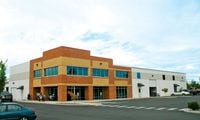

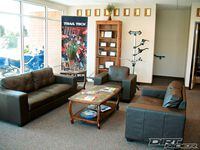
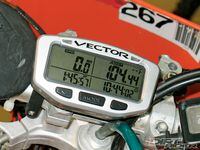
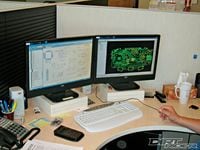
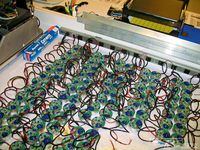
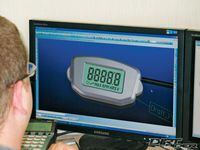
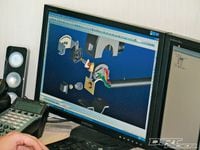
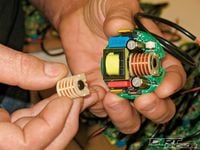
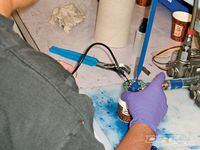
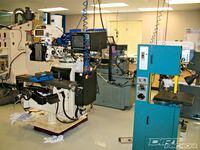
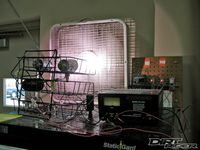
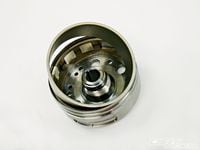
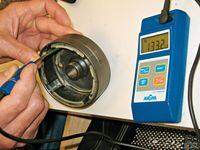
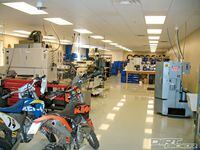
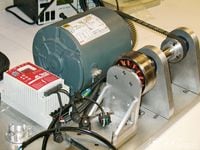
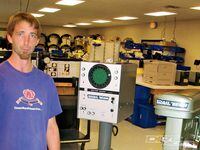
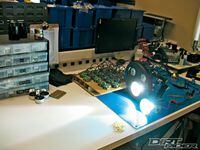
/cloudfront-us-east-1.images.arcpublishing.com/octane/UDQASRGJ3ZDG3BANXWU6P5NIQY.jpg)
/cloudfront-us-east-1.images.arcpublishing.com/octane/YIICVWCT7FDURLJQ2H4AIMXLOY.jpg)
/cloudfront-us-east-1.images.arcpublishing.com/octane/SKYGGQY3XJCPDAM4CUHUXBS444.jpg)
/cloudfront-us-east-1.images.arcpublishing.com/octane/AONOEIBHJBGMBOCD5HBWVB3UAI.jpg)
/cloudfront-us-east-1.images.arcpublishing.com/octane/76O4I66VBNBS5GXX4DNHXXKHR4.jpg)
/cloudfront-us-east-1.images.arcpublishing.com/octane/3LSXOLSH3NEJDBMO3JZ6CYMK5M.jpg)
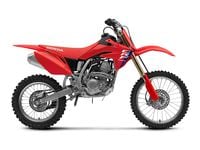
/cloudfront-us-east-1.images.arcpublishing.com/octane/QNIQ2A4UEBGNRKB4STEBJPMUX4.jpg)
/cloudfront-us-east-1.images.arcpublishing.com/octane/35SLCX4NQ5AFTHU6EY7FJSNGEY.jpg)
/cloudfront-us-east-1.images.arcpublishing.com/octane/LVH6MQASTRA2RJ74WY2PM7OAFI.jpg)
/cloudfront-us-east-1.images.arcpublishing.com/octane/TDBZ2JZJ7ZBNBLMB677WNPFLJE.jpg)
/cloudfront-us-east-1.images.arcpublishing.com/octane/3JLESTQC3RFDNBJBXT4OMYU65Q.jpg)
/cloudfront-us-east-1.images.arcpublishing.com/octane/4OOTARNHZRFEJJ5ZPVQMG3H6FE.jpg)
/cloudfront-us-east-1.images.arcpublishing.com/octane/MF32EN5WZNAEXCNYDYFNKMC2AE.jpg)
/cloudfront-us-east-1.images.arcpublishing.com/octane/UGLO3U37HJHGLM22F3D4XOWNVE.jpg)
/cloudfront-us-east-1.images.arcpublishing.com/octane/WSK35AT3LBBH7GZSXAXXREGF6U.jpg)
/cloudfront-us-east-1.images.arcpublishing.com/octane/OXEZZUYKDJHFVB4K7AIQSLRR7M.jpg)
/cloudfront-us-east-1.images.arcpublishing.com/octane/RVOG445TMRAZBNJ77OV3TN5QGQ.jpg)
/cloudfront-us-east-1.images.arcpublishing.com/octane/IQNDTQPP4BE3HE5JUWJ36ONAUU.jpg)
/cloudfront-us-east-1.images.arcpublishing.com/octane/Z6YUC3S26FF4TOKFTXZ7I746YY.jpg)
/cloudfront-us-east-1.images.arcpublishing.com/octane/UOWIK3H4BJHP7F4ONETCB7IXDQ.jpg)
/cloudfront-us-east-1.images.arcpublishing.com/octane/6KKT5NNL2JAVBOXMZYS5ZO76YA.jpg)
/cloudfront-us-east-1.images.arcpublishing.com/octane/PCDJQEHF35A4LCOEW2WGBIAD64.jpg)
/cloudfront-us-east-1.images.arcpublishing.com/octane/YKESTHMNBRBP7PWRYKIMEUU3MQ.jpg)